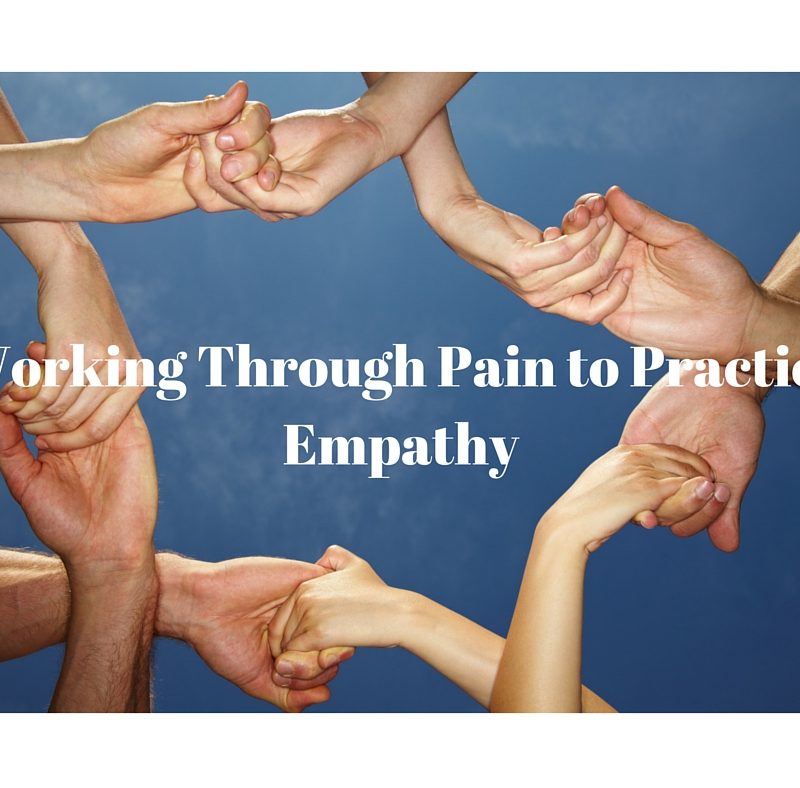I originally wrote this piece as a LinkedIn blog post, which can be found here. But, of course, I thought you all would find it helpful, as well. Be sure to comment and let me know your thoughts!

An Open Letter to Those Struggling with Their Mental Health at Work Right Now
You’re not alone.
You’re not a bad employee.
You’re not destined to fail.
And it’s not your fault.
As someone who leads a ministry that deals heavily with mental health, I’ve noticed that since COVID-19 started, far more people are experiencing mental health issues. And rightly so. What we’re living through right now as a collective whole is daunting, and leaves us feeling unsafe, unsure, and on unstable ground.
Maybe you’ve gotten laid off. Or you’re working from home. Or you’re unsure how you’re going to make ends meet. Or you’re scared of a loved one catching the virus. Or you’re impacted heavily by the civil unrest. Or you’re afraid of leaving the house. Or you’re stuck at home with your abuser. Or you’re carrying other burdens that have only gotten heavier since this started.
All of these (and whatever else you’re experiencing) are real and valid, and it’s not unnatural for those difficulties to spill into the workday hours. Why? Because you’re human.
But there ARE things you can do to help address whatever you’re experiencing mentally so that it doesn’t have to drive your day, and so that you can feel some semblance of control in your life once again.
(Of course, I’m not a doctor. But I have wrestled with anxiety and depression and have found the below to help in times of peril.)
Seek help
Whenever anyone reaches out to me asking for advice on handling anxiety and depression, my first response is always: Seek help. There are many avenues where this can play out. I typically always suggest therapy, but you might find that talking to a loved one is a good place to start. Whatever path you choose, stick the course. These issues do not magically go away. They take work, consistency, and diving deep into what you’re experiencing. Many companies offer EAP, which can provide you with short term counseling. Check with your benefits provider to see if this is available to you.
Looking for a therapist? Here’s a great place to start: https://www.psychologytoday.com/us/therapists.
Take breaks
Give yourself a break – mentally, physically, and emotionally. I try to build intentional breaks into my day where I focus on something else that isn’t work related. This helps me poke my head out of the sand, connect with coworkers, breathe, and find that inner peace, so that when things pop up unexpectedly during the day, they don’t consume me.
This also means taking breaks from technology. Now, taking breaks from technology may be difficult during the workday, so I always recommend starting your day without your phone, and spending quiet time in prayer, reflection, or meditation. This practice has been extremely helpful for me, because I begin my day with intention and purpose and not the noise of the world.
I also take time off of work. Yup, I said it. You need a vacation. A healthy vacation where you disconnect completely from work. Delete email off of your phone. Say goodbye to Slack. Put up your out of office. Then, decompress and spend time with those you love. Your mental health will thank you for it.
Breathe
Deep breathing (yes, that simple act that keeps us alive) helps tremendously with anxiety. Spend time throughout your day paying attention to your breathing. Does it become shallow when you get stressed? This might exacerbate your anxiety without you even realizing it.
Personally, I love the 4-7-8 method, and try to intentionally add this in throughout my day. Read more here: https://www.medicalnewstoday.com/articles/324417#how-to-do-it
Understand that you feel like this now, but you won’t feel like this forever
I had an old therapist who used to tell me, “Maria, you’re catastrophizing the situation.” What she meant was I was ruminating and building up whatever it was in my mind to the point that it was causing extreme anxiety. In other words, because I was overthinking it, it was becoming bigger and bigger.
This isn’t to say what you’re experiencing isn’t real and valid. It is. But there is value in bringing those things to the light (with someone you trust) so that you can parse through what you’re feeling and why, in the hopes that the pain will be lessened.
And you will not feel this way forever. Stick the course. Keep getting help. You will get through this.
Add structure to your day… as best as you can…
I’ve found that when I have a (somewhat) organized day, I feel a bit more in control, which helps mitigate any anxiety. For me, this includes a morning routine, a systematic approach to what I need to get done during the day, breaks, and time in the evening to myself.
Now, this might not look exactly the same for you as it does for me, and that’s okay. It takes time, trial and error, and will not be perfect. Finding a method to the madness of any given day can help keep stressors at bay.
Need some help? I really love the bullet journal method, the pomodoro technique, and Cal Newport’s approach to planning every minute of your day.
Dig deeper into what sets your heart ablaze
Find your passion. Sounds… cliché and overused at this point, right? But honestly, it does work. Having hobbies, a sense of self-worth, a sense of purpose (whether tied to your day job or outside of work), can help you look at your life with a brighter eye.
You know, some may say, “This topic doesn’t belong on LinkedIn, a professional network.” And I agree.
It belongs in our hearts, in our one on one conversations, in our workplaces. And it is more important now than arguably any time in recent history to talk to our colleagues, employees, and employers about mental health.
If you’re struggling, you’re not alone. I understand and my heart goes out to you. You will get through this.
Maria


